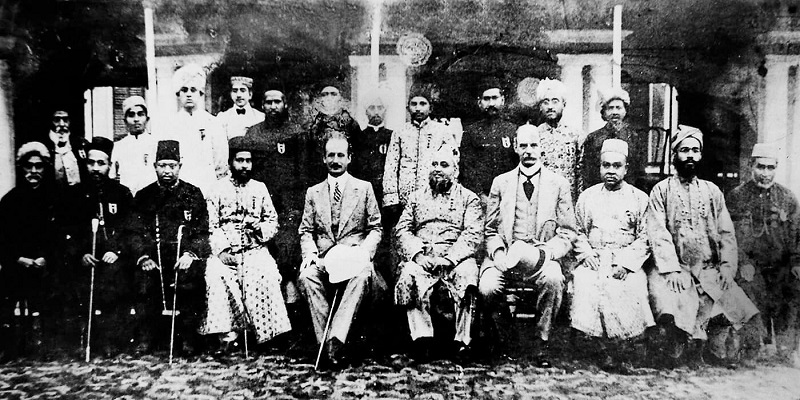AIML Pioneering Muslim Political Representation in British India
The All India Muslim League (AIML) played a pivotal role in the political landscape of British India during the first half of the 20th century. Its establishment marked a significant development in the quest for political representation and rights for Muslims in India. The journey of the All India Muslim League is intertwined with the larger context of the Indian independence movement and the demands for communal representation in a diverse and pluralistic society.
The roots of the All India Muslim League can be traced back to the late 19th century when the Indian National Congress (INC) was gaining momentum as a political force advocating for Indian self-rule. The INC, however, primarily represented the interests of the Hindu community, and this raised concerns among the Muslim elite about their own political future in a united and independent India.
The initial idea of a separate political platform for Muslims was articulated by Sir Syed Ahmed Khan, a prominent Muslim leader and educationist, in the late 19th century. Sir Syed, who founded the Muhammadan Anglo-Oriental College in Aligarh (later Aligarh Muslim University), emphasized the need for Muslims to adapt to modern education and join the administrative services to secure their socio-political interests.
The All India Muslim League was formally established on December 30, 1906, during the annual session of the All India Muhammadan Educational Conference in Dhaka. The conference had been called to address educational issues, but the political situation prompted the leaders to discuss broader political concerns. It was during this session that prominent Muslim leaders, including Aga Khan, Nawab Salimullah Khan of Dhaka, and others, deliberated on the need for a separate political organization to safeguard the political rights of Muslims.
The inaugural meeting of the All India Muslim League saw the adoption of a resolution to establish a political organization to promote the political rights and interests of Muslims in India. Aga Khan was chosen as the first President of the All India Muslim League, and the organization started to take shape as a political entity distinct from other nationalist movements.
One of the key early objectives of the Muslim League was to address the perceived political marginalization of Muslims within the larger Indian political context. The Lucknow Pact of 1916 was a significant milestone in this regard. It was a mutual agreement between the Indian National Congress and the All India Muslim League to share power in the provincial legislatures, with separate electorates for Hindus and Muslims. This pact aimed to ensure adequate political representation for Muslims while fostering a sense of unity between the two major communities.
The political landscape underwent significant changes after World War I, and the Montagu-Chelmsford Reforms of 1919 laid the foundation for a more representative form of government in India. The Government of India Act of 1935 further expanded the constitutional framework. However, the Muslim League's demand for separate electorates and increased representation gained momentum, especially under the leadership of Muhammad Ali Jinnah.
Muhammad Ali Jinnah, often referred to as the "Quaid-e-Azam" (Great Leader), emerged as a central figure in shaping the ideology and direction of the Muslim League. Initially a member of the Indian National Congress, Jinnah became disillusioned with its perceived Hindu-centric approach and joined the Muslim League in 1913. His legal acumen, political astuteness, and commitment to safeguarding Muslim interests made him a key architect of the demand for a separate Muslim state.
The Lahore Resolution, also known as the Pakistan Resolution, was a watershed moment in the history of the All India Muslim League. Passed on March 23, 1940, during the League's annual session in Lahore, the resolution called for the creation of an independent Muslim state comprising regions where Muslims were in the majority. This laid the groundwork for the eventual establishment of Pakistan.
The demand for Pakistan gained momentum during the later stages of British rule in India. The Muslim League's success in the 1946 elections and its effective negotiation with the British and the Congress leadership led to the creation of Pakistan in 1947. The partition of British India resulted in the formation of two independent states, India and Pakistan, with the latter carved out as a homeland for Muslims.
The All India Muslim League played a crucial role in articulating the political aspirations of Muslims in British India. It evolved from its early years of advocating for communal representation to becoming the driving force behind the creation of Pakistan. The establishment of the Muslim League and the subsequent formation of Pakistan marked a significant chapter in the history of South Asia, reshaping the political map of the region and influencing its socio-political dynamics for decades to come.

